News
The Sims: The Game That Redefined Interactive Storytelling and Immersion
Sul-sul!
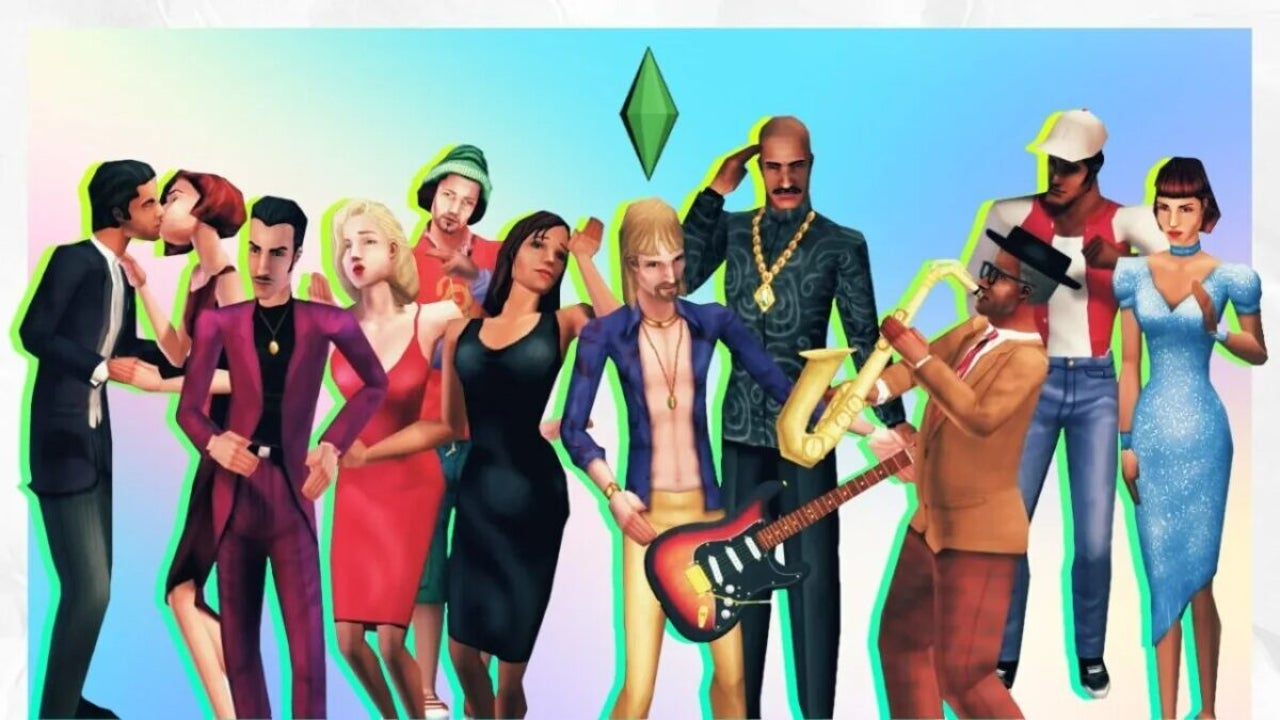
- April 9, 2023
- Updated: July 2, 2025 at 2:34 AM

You come home from school, have lunch, and then get ready to play computer games. On the desktop of your Windows 95 there awaits you: the icon of The Sims. Money tricks, “accidental” deaths or the alarming disappearance of swimming pool ladders are now part of our collective imagination.
And this is a game that changed everything. Released in 2000, The Sims was a revolutionary title that allowed players to design and create detailed houses, as well as embark on controlling virtual lives.
The truth is that the creation of The Sims was not accidental. Will Wright, video game developer, is considered the father of the creature. It is to him that we owe everything. But how did he come up with the idea?
After the great success of SimCity (and its multiple versions such as SimCopter, SimAnt, SimEarth…), Wright and the development team decided to go a step further: instead of a city, now we would control people. We, as players, would have to determine the future of their lives, an idea that more than one welcomed with pleasure.
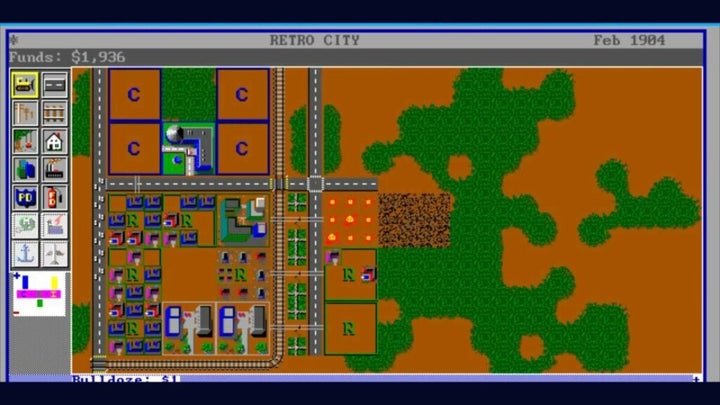
SimCity (1989)
From the beginning, The Sims enjoyed unprecedented success. Critics and gamers welcomed the game with open arms, which made it the best-selling PC title in both 2000 and 2001. During those years, it managed to sell more than 3 million copies, something incredible considering the context and the situation of the videogame during those years. In fact, it managed to accumulate a whopping 16 million sales until February 2005.
However, its success was somewhat unexpected as simulators were not exactly popular. Animal Crossing didn’t exist yet, Harvest Moon seemed more like a Zelda clone (in fact, it defined itself as a “farming RPG”) and the Tycoon game series was the highlight of the genre at the time. The Sims had before it a whole field to explore and over time, it took over.
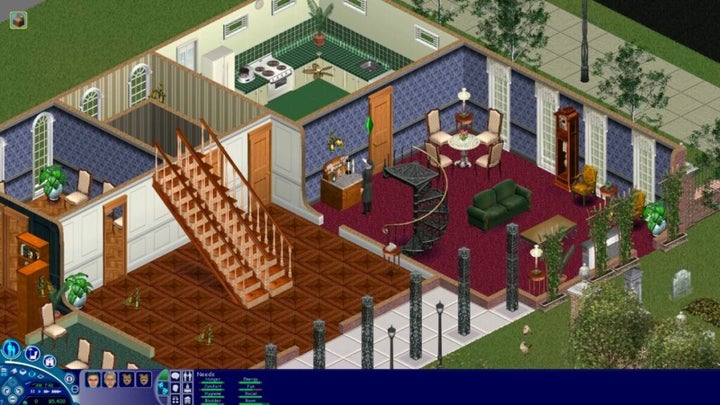
“The kiss that changed video games.”
That’s the title of this article from The New Yorker that tells us how a kiss managed to change the course of The Sims. While we have more diversity in video games now, it certainly wasn’t the norm in the 2000s. However, The Sims presentation at E3 in 1999 naturally showed something happening in the game: two Sims of the same gender kissing.
At that time, Electronic Arts bought the Maxis studio after the success of SimCity. E3 1999 was a very important event for the developers of The Sims, because if there was no interest, the game would have been cancelled. In fact, Sims programmer Patrick J. Barret explained that EA did little or nothing to help them at the time: “The game wasn’t even shown on the screens alongside other titles. But, hours later, a kiss between two Sims would make it all the talk of E3.
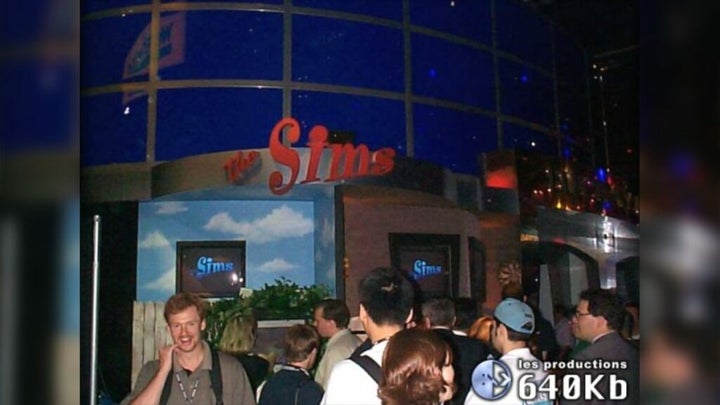
The Sims at E3 1999.
The Sims recreated life in all its details and this obviously included romantic relationships between Sims of the same gender. After much thoughtful internal debate, the developers decided not to include homosexual relationships. In particular, EA felt that this might affect sales, so that’s how it stayed, for the time being.
However, an error when setting up the demo that would be seen at E3 would lead EA’s decision to the derailment. And that was what hundreds of media saw during the event: one of the program scenes showed two Sims of the same gender kissing, something that eventually won everyone over. The attention that The Sims aroused made its arrival even more eagerly awaited.
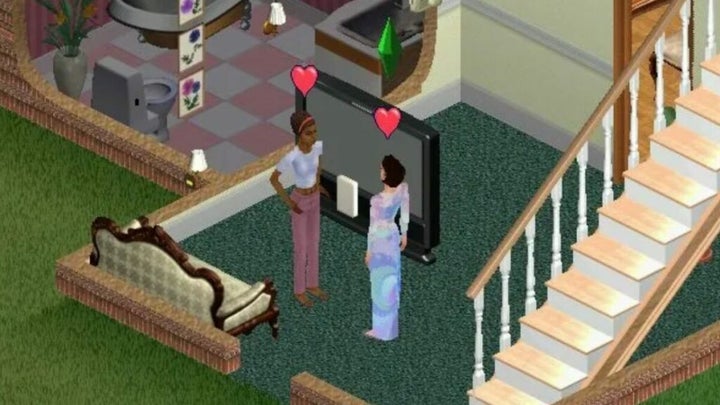
Live, buy and build
Now with our game in hand, there was one thing to do: keep our Sims happy. Although this task may seem easy and simple, the truth is that these “little people” demanded more attention than a baby. Our Sim is hungry? Okay, we’ll have him grab something from the fridge to cook. Oops! Now the kitchen’s on fire. Did you set the fire alarm? Apparently not. Tough luck, now all you can do is watch your Sims scream as you stare at the screen questioning all your life decisions.
If you were very new to the game, you usually ended up using money tricks to survive. Back then, what was distilled was kaching, rosebud (in honor of Citizen Kane) and klapaucius followed by “!!!!!!!!!!!!!”. It was something you had to do if you didn’t want to get completely imbued in the cycle of work, eat and rest, all in pursuit of getting better at said job and thereby generating more money (capitalism, is that you?).
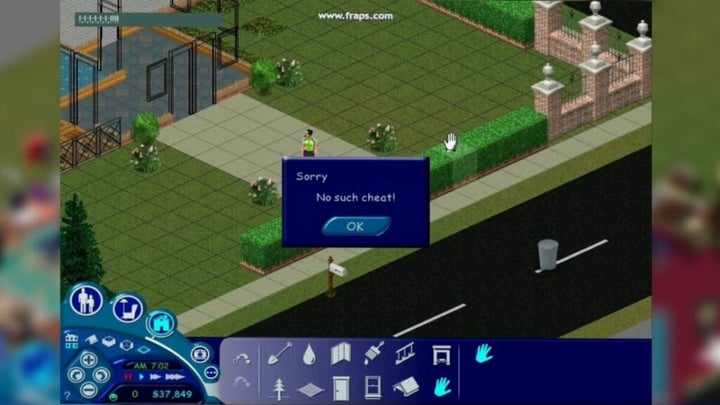
It is important to write the tricks well.
What we have talked about is the Living Mode, which is where we control every step of our Sim in this lonely virtual world. The truth is that this game mode made people who had never touched a video game approach one for the first time. However, there was another very important part of The Sims: the Build Mode.
It is likely that Build Mode has cultivated the skills of, at the time, little architects in potential. Its wide variety of tools meant that many of us spent countless hours creating mansions, each one more bizarre (or giant squares with no aesthetic criteria whatsoever).
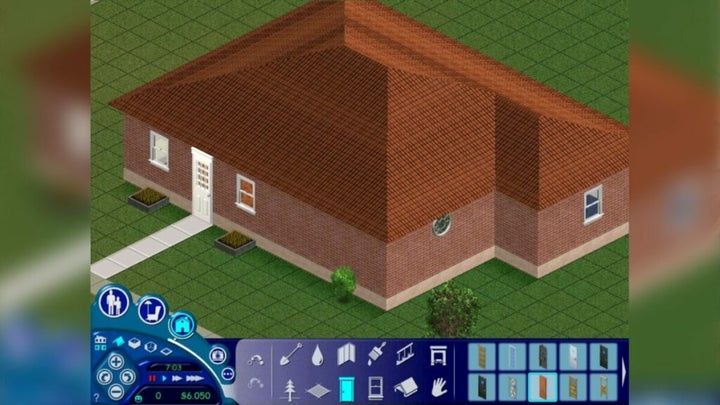
Superior architecture.
Expansions galore
One of the most recognized aspects of The Sims has been its expansions. Shortly after the launch of The Sims, we received the first pack in the history of the franchise: The Sims: More Alive Than Ever. At that time, it was a pack with objects, extra options, jobs and more that enhanced the game experience.
This was followed by more and more, such as House Party, First Date or Vacation, to name a few. Thanks to these packs, our Sims could adopt animals, go on vacation or be movie superstars or singers. If you were lucky, you could meet celebrities like Avril Lavigne or Christina Aguilera (although unfortunately you could only ask them for autographs). In fact, we could become magicians thanks to Magia Potagia.
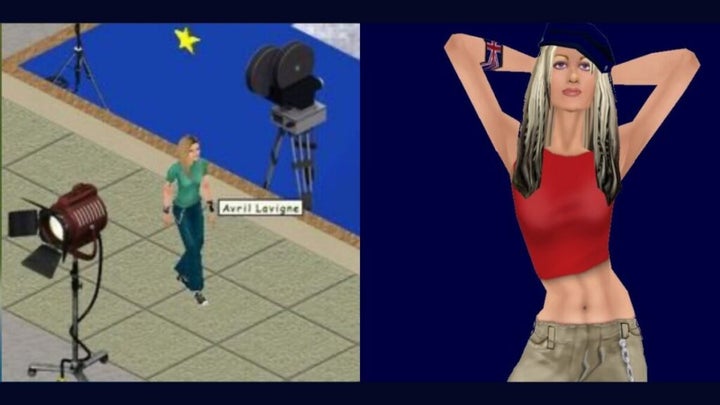
Admit it, The Sims had a “creepy” touch.
I’m sure many of you will agree with me on one thing: The Sims had a haunting and lonely feel to it. To this day, many adults still deal with the traumas caused by the appearance of nighttime burglars and annoying ghosts. Of course, it didn’t stop there: anyone remember the “prank phone calls”?
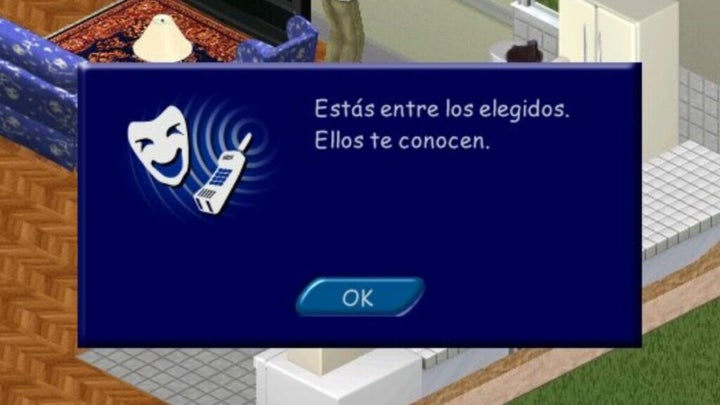
One of the objectives of the game is to keep our Sim happy and with his needs covered. So don’t even think of letting him die of hunger, since the desperate scream that your Sims will let out will remain engraved in your eardrum for a long time. And if your Sims is a bit depressed, don’t neglect him, because the game will condemn you with the visit of the Tragic Clown (as long as you have bought his painting from the Buy Mode).
In short, The Sims was just the beginning: 20 years later, the saga is still relevant and it seems that we have a franchise for a while. It was followed by its long-awaited sequel, The Sims 2, but we’ll talk about that later.
Artist by vocation and technology lover. I have liked to tinker with all kinds of gadgets for as long as I can remember.
Latest from María López
You may also like
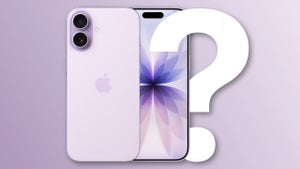 News
NewsThis year there won’t be an iPhone 18: what sources are saying and why there’s a catch
Read more
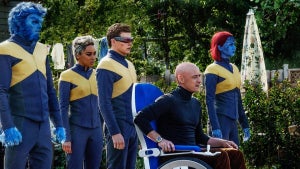 News
NewsWe have waited 20 years for this Marvel hero to have a fair ending
Read more
 News
News2026 will not be the year when this highly anticipated saga returns
Read more
 News
NewsNetflix cancels the upcoming series by the Duffer brothers
Read more
 News
NewsTrump strikes back at George Clooney after the actor called him an idiot
Read more
 News
NewsYou can now watch the trailer for the most anticipated superhero series
Read more